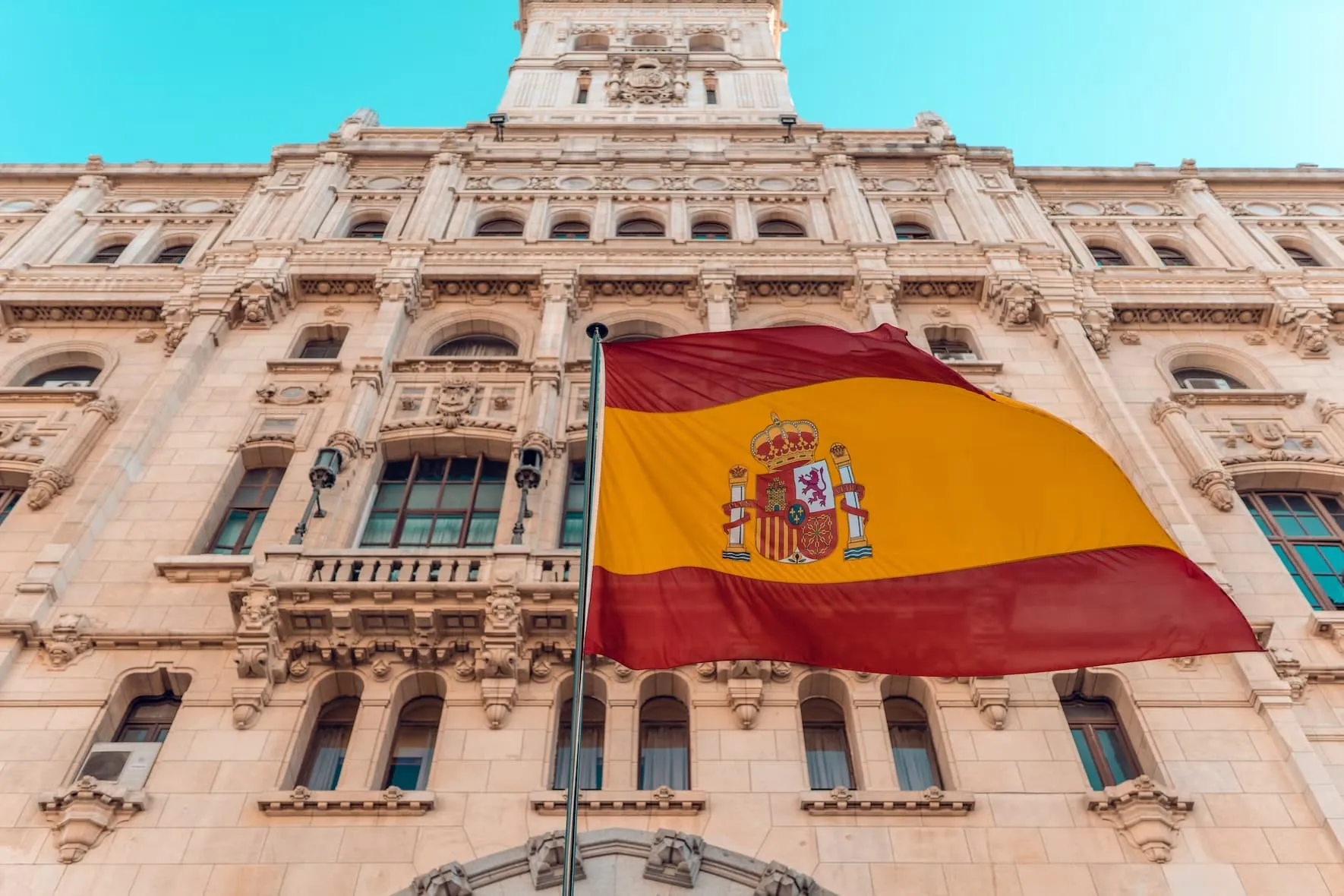Family Reunification Visa in Spain
If you hold legal resident status in Spain and you would like to bring your family member to live with you, obtaining a family reunification visa is the best way to do it.
For immediate guidance on your application for a family reunification visa for Spain, including one-on-one assistance from our immigration professionals, get in touch today.
Call us via (+44) 333 4149244, or contact us online. We can guide you in person, over the phone, or online.
Read our 1001 reviews
Request a call back from our immigration experts
Benefits of Choosing IAS‘ Spain Immigration Lawyers
When it comes to obtaining a Spain visa or permit, IAS Spain immigration lawyers are well-equipped to help you.
With IAS’ track record of successfully helping clients visit or immigrate to Ireland successfully, we can help businesses and individuals achieve their goals.
Our dedicated immigration lawyers provide our services through a comprehensive and personalised approach. With IAS, you enjoy:

Expert support from an experienced immigration lawyer dedicated to your success



Support in gathering supporting documents and completing a high-quality application.



Confidence that your case is being handled by an experienced team.



In-house document checks done by lawyers who are accredited by the IBA in Madrid and Seville.
Services we Provide
What is the Family Reunification Visa for Spain?
If you’re based in Spain as a foreigner who already has legal resident status in the country and you want to bring your family to live with you, you’ll need to obtain a family reunification visa. Family reunification is a procedure that exists under Spanish immigration law.
It makes it possible for certain family members to be given legal resident status in Spain via their dependency on an individual holding a valid residence permit.
The family reunification visa is not available to the family members of individuals from EU countries or countries in the European Economic Area (EEA) or Switzerland. Under EU and EEA free movement rules, family members from those countries can already move freely to Spain.
As such, the family reunification visa is specifically for family members of residents in Spain from non-EU countries and countries outside the EEA and Switzerland.
The person making the application should have lived in Spain for a year and have gone through the process of being approved for their second year as a legal resident in Spain before applying for family reunification.
There are some exceptions to that rule, however. For example, holders of an EU Blue Card and those who have long-term residence and work permits from another EU country don’t have to wait to be approved for a second year in Spain.


The Types of Family Members That Can Obtain a Family Reunification Visa
A Spouse or Partner
One of the most common family members to apply for the family reunification visa is the applicant’s spouse or partner. They can apply for this type of visa in Spain, as long as the partnership is maintained and analogous to a marital relationship.
That means you don’t necessarily have to be married to your partner for them to qualify for this visa. But you must be able to show that you’re in a relationship that’s comparable to that of a married couple.
The two of you must not be separated, either in law or in fact, in order to qualify for this visa.
As you might expect, under Spanish law, you may only obtain a family reunification visa for one spouse or partner, and no more than that.
Children of the Applicant
The children of an individual living in Spain can apply for a family reunification visa too, as long as they’re under the age of 18. They may also qualify if they’re over the age of 18 but have disabilities that mean they can’t support themselves.
The children of a partner can also qualify for a family reunification visa. And any children that are adopted by an individual living legally in Spain or their partner can also qualify. You just need to ensure the adoption is legally valid in Spain.
The Parents of the Applicant
Your parents or the parents of your spouse or partner may qualify for a family reunification visa in Spain, depending on certain factors. They must be in the care of the applicant and they must be over the age of 65.
There also needs to be specific factors that mean they require the care of the applicant. In some instances, parents under the age of 65 may be granted a family reunification visa on humanitarian grounds. For example, if there are extenuating health circumstances, it is possible for a visa to be granted.
Requirements for Spain Family Reunification Visa
Proof of Familial Relationship
One of the most important requirements for the family reunification visa in Spain is proof of the familial relationship between you and the person or persons you want to bring to Spain.
You need to be able to show that the relationship between the two of you exists, as well as show their dependence on you.
For a spouse, this might be as simple as showing a marriage certificate or an equivalent document. For unmarried couples, it is necessary to provide documents that prove the relationship and its existence before the applicant first arrived in Spain.
When applying to have your children move to Spain with you, you’ll need to provide their birth certificate from the relevant civil registry in the country of their birth.
It must also be proven that the parent has sole custody over the child and they have the right to move them away from their country of origin.
For a parent, you must show proof in the form of birth certificates that you are the son or daughter of your parents, or other legal documentation if, for example, you were adopted by them. It also needs to be demonstrated why they require your care.
The Spanish authorities generally need to see that over the past year, the applicant has transferred money to or covered the living expenses of the parent or parents.
Economic Means
As the applicant who’s seeking to move your family to Spain, you’ll need to show that you have the economic means to take care of these dependents.
If you’re already sending payments back to your family to help them with their living costs, this will help to prove that they are depending on your financial support.
You might also need to provide evidence that your accommodation is secure and big enough to house each of the family members you’re seeking to bring to Spain with you.
Proof of Legal Residence
As the applicant who’s already living in Spain, you’ll need to provide proof of that. Bills and documents that show you’re living and working in the country will usually be enough.
You will also need to provide a copy of your residence and work permit as part of the application process.
What to Expect from the Application Process
The Individual Living in Spain Initiates the Application Process
In order to regroup with your family in Spain, it is necessary for the whole family reunification visa application process to be initiated by the individual who is already legally based in Spain.
They have to fill out the relevant forms and provide evidence of their own legal right to be living and working in the country.
Provide Identification Documentation
Everyone who’s seeking to move to Spain and regroup with you must provide identification documentation, as must you as the person who initiated the application.
If you are legally based in Spain, you’ll need to show your Foreigner Identification Card, which must not be expired.
Applications Must be Submitted in Person
When all of the relevant forms are ready to be submitted, this must be done in person. That applies to you when you initiate the application process too.
Any forms and documents that need to be submitted by your family member or members should be submitted at the immigration office in their location.
Notification of Receipt
Once your documents are submitted, the Consular Office will provide you with a receipt, which will include a code that can be used to track the progress of your application online.
If you have any questions about this, be sure to ask the officials at the immigration office when they give you this receipt.
The Decision Period
The amount of time it takes for a decision to be reached will depend on numerous factors. In some instances, they might require more information from you or your family member.
In this case, the individual or individuals seeking to move to Spain might be called in for an interview. Or they might simply be asked for specific documentation to support their application.
Generally speaking, the decision period will take approximately two months. But as we’ve discussed, this might be extended depending on the specific circumstances of your application.
Collecting the Visa
If your visa application is approved, the individuals seeking to move to Spain will need to collect their visas in person.
This is something that needs to be done within one month of being notified of the positive outcome of the application.
When you receive this notification, you’ll also be told about the process of getting back your passport and other original documentation that was submitted as part of the application.
Appealing a Visa Refusal
Of course, there’s also a chance that your family reunification visa application might be refused.
In this case, it is your right to go through the process of appealing the refusal if you feel that the decision was incorrect or unfair. The refusal will be sent to you in writing and the reasons for the refusal should be outlined.
If you want to make an appeal, this must be submitted to the immigration office within one month of being notified. This can then make its way through the relevant legal channels.
What Happens When Your Family Member Arrives in Spain?
Once you have the visa for family reunification in Spain, it needs to be used to travel to Spain within 90 days.
Once the holder or holders of the visa are in Spain, they’ll need to apply for a Foreigner Identification Card within one month.
This can be done at a police station in the province where you will be staying.
Which Documents Are Required for Family Reunification Visa Spain?
Visa Application Form
Each person who’s applying to move to Spain with you will need to complete and submit the visa application form. This can be done after you have initiated the visa application process.
So if you are seeking to move multiple family members to Spain, you’ll need to submit a visa application form for each of them. In the case of minors, their legal guardians can fill out the application forms for them.
It is possible for under-18s to fill out the forms themselves, but a signature from a guardian or representative must also be provided.
Passport Photographs
A recent passport photograph must also be submitted for each applicant. The photo should be taken in colour against a light background, and the subject needs to be facing forward, without any dark or reflective glasses or anything obstructing the face.
Passport and Photocopy
The original passport for each applicant, as well as a photocopy of the passport including pages containing biometric data, needs to be submitted as part of the application.
The passport submitted cannot be more than ten years old and shouldn’t be expired. You also need to make sure that the passport isn’t due to run out anytime soon; it should be valid for at least another four months. It should also contain two blank pages.
Applicant’s Residence Permit
As we mentioned previously, a vital part of the application process is proving that the applicant residing in Spain is doing so legally.
After all, the entire visa application hinges on the fact that the person seeking to bring their family member with them is entitled to live and work there.
You should have already renewed your visa once, meaning you’ve lived in Spain for at least one year.
Documents Showing Proof of Familial Relationships
We’ve mentioned the documents that you’ll need in order to prove your familial relationships to your partner, children, or parents. It is up to you to provide these documents in the right format, and they should be translated into Spanish as well.
Criminal Record Check Certificate
All applicants who are of legal age are required to go through a criminal record check in the country or countries they’ve been living in for five years before submitting this application.
When they’ve been through such a check, they’ll be provided with a criminal record check certificate.
This certificate as well as a copy must be submitted as part of the visa application. These must also be provided alongside a Spanish translation.
Medical Certificate
Before moving to Spain, you must go through a medical check that proves you don’t have any diseases that might pose a threat to public health.
These requirements are outlined under the 2005 International Health Regulations, and it’s something medical professionals in your home country will be able to help you with.
Again, this medical certificate must be submitted alongside an official Spanish translation.
Visa Application Payment
In order for your visa application to be processed, you must make the necessary payments. The amount you’ll need to pay in order for your visa application to be considered will differ depending on your country of origin. But the base cost for most countries will be €80.
How Can IAS Help?
Many people and families apply for a family reunification visa for Spain every single year. While the majority of these applications are successful, some fail to meet the requirements and eligibility criteria, which can be incredibly stressful for all involved.
If there are doubts about whether your family member really needs to live in Spain with you and whether they are dependent on your income, the initial family reunification application may be refused.
You will need to show the Spanish authorities, through your supporting documentation and your responses at the meetings and consultations you attend, that your relationships are genuine and that your family member is economically dependent on you.
As difficult as this may sound, you don’t have to go it alone. IAS can assist you throughout the whole process.
We are professional, experienced, and understanding immigration advisers with a long history of working with people to achieve family reunification in Spain.
If you are in the process of preparing to apply for the family reunification visa in Spain, we will be able to work with you to ensure that the family member has the best chance of being granted their visa possible.
We will help you prepare your documentation and responses, and assist with formatting and drafting all the necessary evidence to help with your application. In the case of an application refusal, we can help with your next steps too.
For more information about the services we offer, how we can help you with your family reunification visa application process, and how to approach the application, reach out to us at (+44) 333 4149244, or contact us online today.
Table of Contents
Table of Contents will appear here.Legal Disclaimer
The information provided is for general informational purposes only and does not constitute legal advice. While we make every effort to ensure accuracy, the law may change, and the information may not reflect the most current legal developments. No warranty is given regarding the accuracy or completeness of the information, and we do not accept liability in such cases. We recommend consulting with a qualified lawyer at Immigration Advice Service before making any decisions based on the content provided.
Frequently Asked Questions
The amount you’ll need to pay for the visa will be a sum equivalent to approximately €80. Costs do differ depending on your location, however.
Due to policies relating to reciprocity, costs for nationals of Australia, Bangladesh, Canada, the United States of America, and the United Kingdom are different. In those instances, the exact amount you’ll need to pay can be found by contacting the Consular Office.
If you want to become a citizen of Spain, you generally need to be legally living and working in Spain for ten years. There are some exceptions to this, however.
Refugees can secure Spanish citizenship after living in the country for five years. And foreigners coming from certain countries, including Portugal, Latin American nations, Andorra, Equatorial Guinea, and the Philippines can gain citizenship in Spain after just two years.
People from those countries may also hold dual citizenship with the country of origin. That means they retain the rights of a citizen in both countries.
People who are married to someone of Spanish nationality, or who have a parent or grandparent who’s a Spanish national can become a citizen of Spain after living in the country for one year.
Citizens have more rights and security when living in Spain, and that’s why becoming a citizen is important to so many.
If you only hold a work and residence visa in Spain, it will be unlikely that your extended family member will qualify for a family reunification visa.
They may only qualify if you hold Spanish citizenship or citizenship in another EU country. And even then, the family member must be dependent on you economically in order to qualify.


What our clients are saying
How our UK Immigration Lawyers can help
At the Immigration Advice Service our lawyers specialise in a wide range of UK visas, nationality and asylum applications and have represented clients in various successful complex and high-profile cases.














